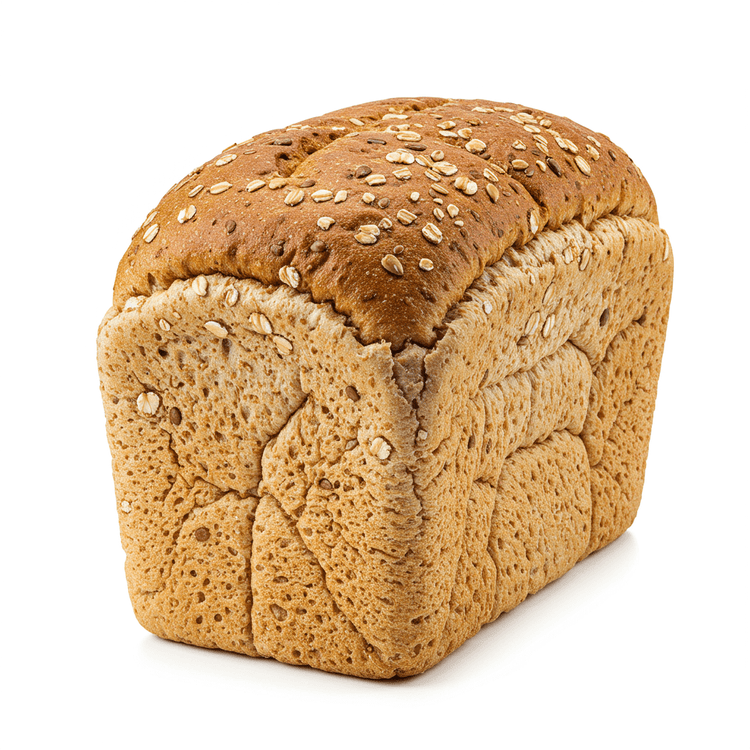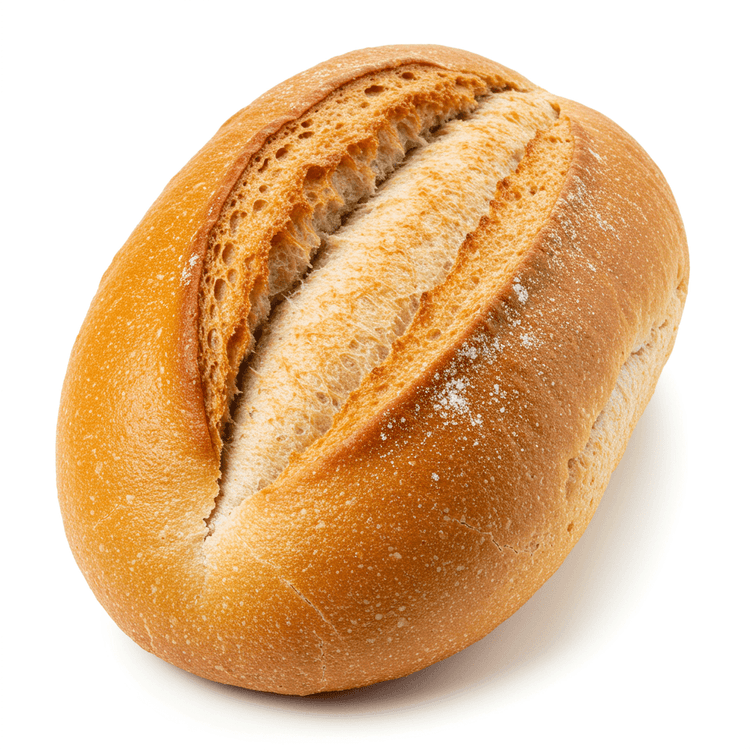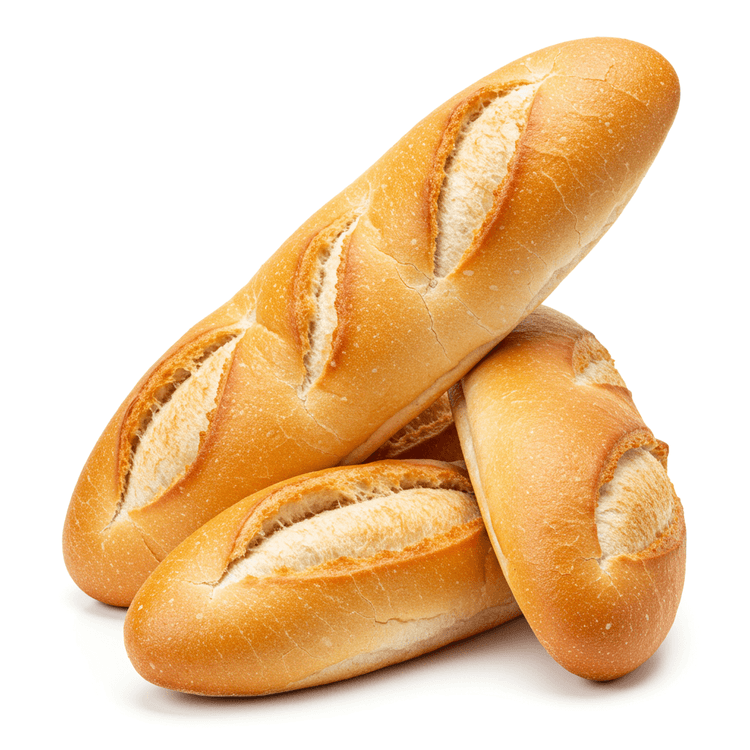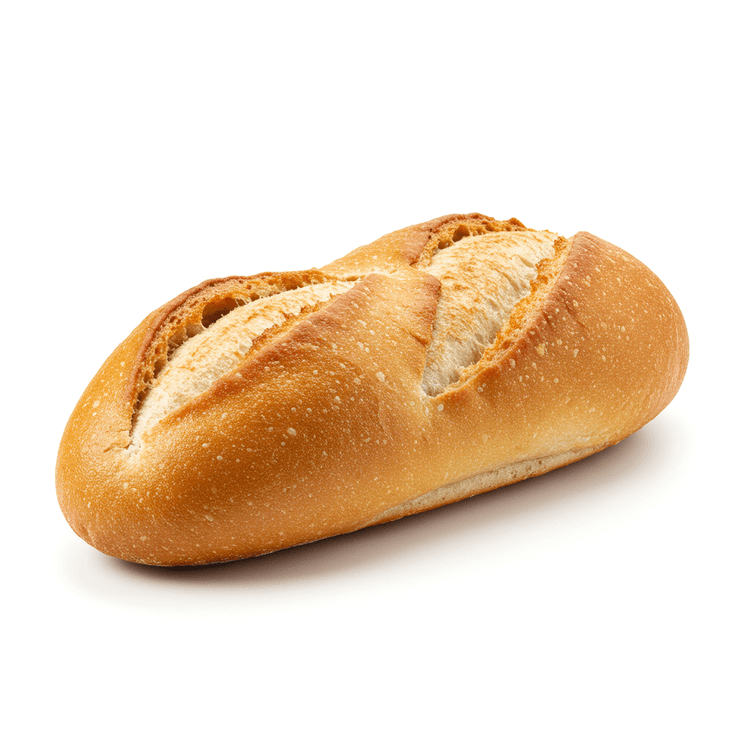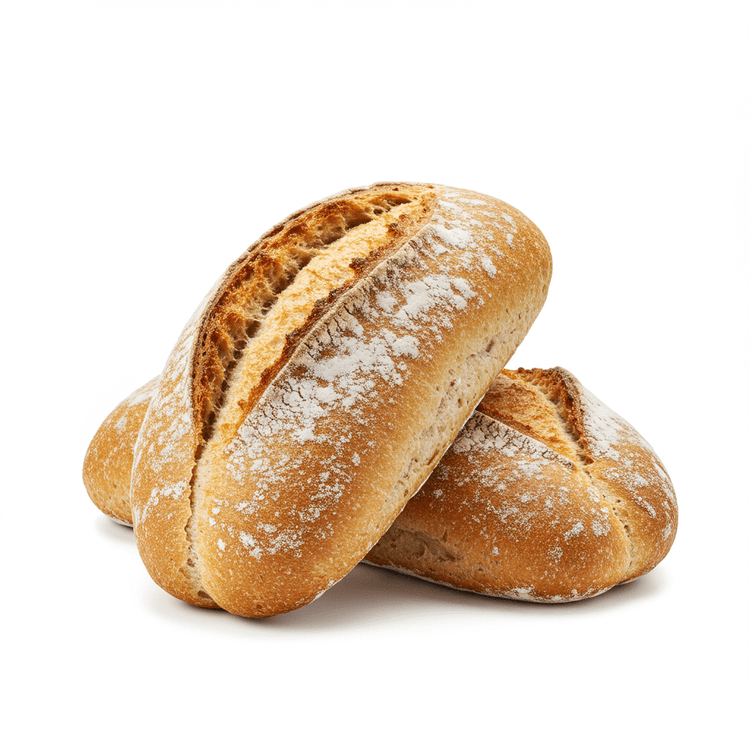
Sourdough
Sourdough bread is a type of bread made by the fermentation of dough using naturally occurring lactobacilli and yeast. This creates a distinctively tangy flavor, chewy texture, and a slightly crusty exterior. The fermentation process contributes to its unique flavor profile, which is often described as sour or tangy, depending on the specific cultures and fermentation time. Sourdough loaves often have an irregular crumb structure with varying-sized air pockets. The color can range from a light golden brown to a deeper, richer brown, depending on the baking time and crust caramelization. Sourdough starters are crucial for bread making and imparting that characteristic flavor.
Common Uses
- Sourdough is widely used for making hearty sandwiches, offering a robust base that complements various fillings with its tangy taste and firm texture.
- It can be toasted to create crispy croutons, perfect for adding a flavorful crunch to salads and soups.
- Sourdough is excellent for making grilled cheese sandwiches; the tangy flavor and crusty exterior elevate the classic comfort food.
- Many people use it to prepare sourdough bread pudding, its robust texture preventing sogginess.
- Sourdough is also used in appetizers and snacks like bruschetta or crostini, where its flavor shines when topped with fresh ingredients.
- It also makes a delicious base for a variety of open-faced sandwiches or tartines; it can hold spreads, cheeses, and meats well.
Nutrition (per serving)
Nutrition (per serving)
Calories
275.0kcal (13.75%)
Protein
9.4g (18.8%)
Carbs
55.0g (20%)
Sugars
2.0g (4%)
Healthy Fat
0.8g
Unhealthy Fat
0.2g
% Daily Value based on a 2000 calorie diet
Nutrition (per serving)
Calories
275.0kcal (13.75%)
Protein
9.4g (18.8%)
Carbs
55.0g (20%)
Sugars
2.0g (4%)
Healthy Fat
0.8g
Unhealthy Fat
0.2g
% Daily Value based on a 2000 calorie diet
Health Benefits
- Supports gut health with prebiotic and probiotic properties promoting a balanced gut microbiome.
- May be easier to digest than commercial breads due to the fermentation process, which breaks down gluten.
- Helps regulate blood sugar levels due to its lower glycemic index, preventing rapid spikes.
- Provides essential nutrients like iron, B vitamins, and antioxidants for overall well-being.
- Can improve mineral absorption, as the fermentation process reduces phytates that inhibit mineral uptake.
Chefadora AI is here.
Experience smarter, stress-free cooking.
Storage Tips
To maintain sourdough's freshness, store it at room temperature in a bread box or a loosely sealed paper bag. Avoid plastic bags, as they can trap moisture and cause mold. For longer storage, slice the sourdough and freeze it in an airtight container or freezer bag. When ready to use, thaw at room temperature or toast directly from frozen to restore its texture and flavor. A few drops of water on top can help restore some moisture when reheating.
Marnirni-apinthi Building, Lot Fourteen,
North Terrace, Adelaide, South Australia, 5000
Australia
